 Shocking moments when PLA's weapons open fire
Shocking moments when PLA's weapons open fire Famous Lanzhou beef noodles
Famous Lanzhou beef noodles Armed Police hold anti-terrorism drill in SE China's Xiamen
Armed Police hold anti-terrorism drill in SE China's Xiamen Harbin Int'l Ice and Snow Festival opens
Harbin Int'l Ice and Snow Festival opens 'Jin' named the word of the year by cross-strait netizens
'Jin' named the word of the year by cross-strait netizens Chinese scientific expedition goes to build new Antarctica station
Chinese scientific expedition goes to build new Antarctica station
 Chinese naval escort fleet conducts replenishment in Indian Ocean
Chinese naval escort fleet conducts replenishment in Indian Ocean 17th joint patrol of Mekong River to start
17th joint patrol of Mekong River to start China's moon rover, lander photograph each other
China's moon rover, lander photograph each other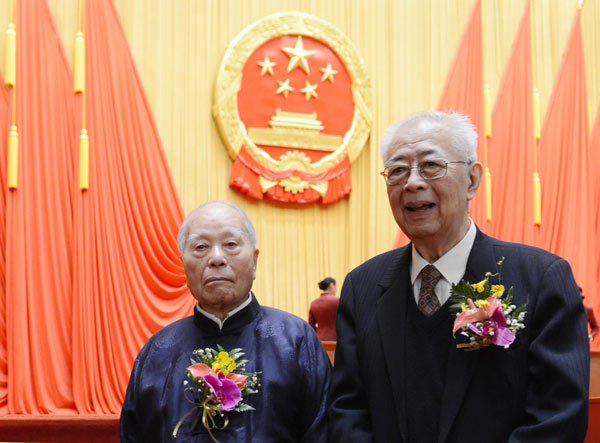 |
| Nuclear weapons expert Cheng Kaijia (left) and physical chemist Zhang Cunhao, winners of this year’s top national science award, attend a grand ceremony in the Great Hall of the People in Beijing on Friday. ZHOU WEIHAI / FOR CHINA DAILY |
Two scientists, nuclear weapons expert Cheng Kaijia and physical chemist Zhang Cunhao, won China's top science award on Friday for their outstanding contributions to scientific and technological innovation.
The pair, both members of the Chinese Academy of Sciences, were presented with certificates by President Xi Jinping at an annual ceremony honoring distinguished scientists and research achievements.
They each won an award of 5 million yuan ($826,000).
Addressing the ceremony, Premier Li Keqiang said, "China has entered a new stage in which the country must rely more on science and technological innovation to guide and support its economic development and social progress."
The nation's traditional growth pattern, mainly driven by investment, is difficult to sustain, Li said.
Eight foreign scientists from Italy, the United States, Germany, Russia and Canada won the International Science and Technology Cooperation Award.
Meanwhile, 313 scientific research projects received the 2013 State science and technology awards.
One highlight of this year's awards was that a first-prize winner was found for the State Natural Sciences Award — which recognizes major breakthroughs in fundamental research — after a gap of three years.
The award was given to the discovery of iron-based high temperature superconductors, a project conducted by scientists from the Institute of Physics under the Chinese Academy of Sciences and other institutions.
Superconductivity basically refers to the electrical resistance of a material suddenly being reduced to zero under certain circumstances, said Zhao Zhongxian, a superconductivity physicist and member of the Chinese Academy of Sciences.
Components made from superconductors can help to improve the accuracy of atomic clocks on satellites, accelerate central processing units on computers, and increase the precision of gyroscopes on navigational devices.
"Many excellent scientists contributed to the research on superconductivity in China, and it is hard to tell whether we would have reached this point without any one of them," Zhao said. "In China, we have a good research tradition on superconductivity, and we have talent of all ages. China has become a rising power in condensed matter physics," he added.
In 2009, the research and compilation of Flora of China, a scientific publication aimed at describing plants native to China, won first prize in the State Natural Sciences Award.
The project marked collaborative efforts by Chinese scientists to publish the first modern English-language account of some 31,000 important plants and 7,500 species of trees and shrubs.
 In photos: Ten 'tuhao' devices in 2013
In photos: Ten 'tuhao' devices in 2013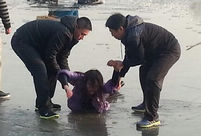 College students saved from an ice hole by brave citizens
College students saved from an ice hole by brave citizens Gallery: Top 10 box office hits in 2013
Gallery: Top 10 box office hits in 2013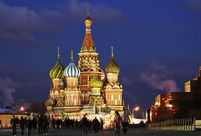 Beautiful churches around the world
Beautiful churches around the world Yang Mi, Hawick Lau hold wedding in Bali
Yang Mi, Hawick Lau hold wedding in Bali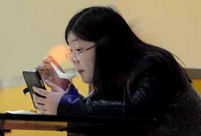 'Phubbing' people seen everywhere
'Phubbing' people seen everywhere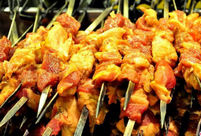 World's biggest snack shop in China
World's biggest snack shop in China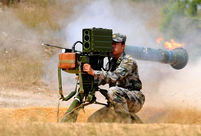 Shocking moments when PLA's weapons open fire
Shocking moments when PLA's weapons open fire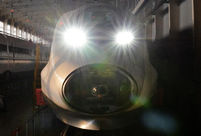 World's fastest train CRH380A assembled in E China
World's fastest train CRH380A assembled in E China Top 10 box office hits in 2013
Top 10 box office hits in 2013 In photos: Ten 'tuhao' devices in 2013
In photos: Ten 'tuhao' devices in 2013 Real estate tycoon measures PM2.5
Real estate tycoon measures PM2.5  'I am on a journey to lose weight'
'I am on a journey to lose weight' 'Cute' artifacts exhibited in Nanjing Museum
'Cute' artifacts exhibited in Nanjing Museum Advanced Chinese weapons that stepped into spotlight in 2013
Advanced Chinese weapons that stepped into spotlight in 2013Day|Week|Month